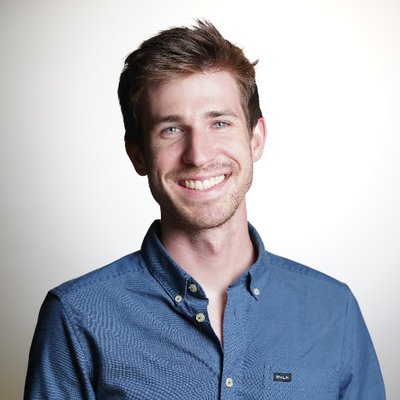
Founder, CEO of Everyspace
Tom Bachant is the founder & CEO at Everyspace, a community platform to create meaningful connection in remote teams. Previously, Tom founded Dashride, a ridesharing platform that was acquired by Cruise in 2018 and was named one of Forbes “30 Under 30” in 2019. Tom is an entrepreneur, engineer, and product expert focused on creating equitable social impact.
Thomas Bachant is doing things WerthWatching:
- Helping companies centralize communications to better engage and retain employees
- Passionate about building community in a modern world
- Involved in nonprofits working to create equitable, sustainable transit
How did you become interested in being a serial entrepreneur?
I never had that goal in mind, but rather, I’ve always looked for problems that I could solve, and iterated on solutions until people started using what I had built. It just so happens that if you’re stubborn and persistent enough at this, you end up becoming an entrepreneur.
Why are entrepreneurship and innovation important to you?
We should always be looking for ways to have an outsized positive impact on the world. For me, software was the way to create a solution used by millions of people by writing a few lines of code, and it’s hard to pass up on an opportunity like that.
Can you describe a time you took a risk? Did it pay off? If not, what lesson did you learn?
When I graduated from UConn, I passed on a cushy job offer in order to work on my first startup, Sobrio, which was a ridesharing service for college students. I jumped in full-time with no salary and even lived on an RV for 2 months while we launched the app on different college campuses. Nothing motivates you to succeed quite like being broke and without a home! It taught me about ruthless prioritization and that done is better than perfect when the stakes are high and you have a lot of problems to solve.
Where do you see Everyspace in the next five years?
Everyspace’s goal today is to create a sense of community within companies, and our goal over the next decade is to create communities across the globe around various interests, ideas, and identities. People everywhere are seeking community and we want to be the place to start.
Any advice for companies on how to create connection and community in remote teams?
It takes work. As much as we wish that people could all autonomously self-organize into the perfect groups, it takes having the right people and the right tools to facilitate connection. Finding the right group size, making communication easy, and defining a shared mission separates a disparate group from a meaningful community.
How did UConn prepare you for where you’re at today?
There were some amazing resources for aspiring entrepreneurs at UConn, including but not limited to the Werth Institute and the Innovation Quest program that connected us with the right mentors during the early days (shoutout to Keith Fox and Richard Dino!). The first funding we ever received was from a business plan competition held by the School of Business, and it jumpstarted my first company.
What’s your favorite UConn memory?
I’ll never forget the night the men’s basketball team with Kemba Walker won the NCAA championship! The campus erupted in celebration, and my professors were kind enough to overlook the fact that I did not come close to finishing my homework that night.
What advice do you have for today’s students or emerging entrepreneurs?
To my fellow engineers out there, it’s a harsh truth to learn that “if you build it, they will come” is a lie. Building is only one part of the process. You need to talk to customers, deeply understand their problems, build, validate, iterate, and be able to clearly communicate your value proposition and market/sell effectively.
Describe a professional moment you are most proud of, and why?
Believe it or not, I'm still proud of the Startup Weekend Storrs competition that we competed in back in 2012! My co-founder and I hacked together a project over the course of a weekend, presented it in front of an audience of smart, ambitious people, and came out with the top prize! It was motivating to see how a small group with a well-defined goal can create something meaningful in a matter of days.
Which business tool or resource do you recommend to others, and why?
If you’re looking to start a tech company, “Startup School by Y Combinator” is a great place to start. This is a series of talks on everything from fine-tuning your idea to building your solution to recruiting your team. It’s run by some of the most successful entrepreneurs in the tech world, and I still rewatch the videos from time to time.
What are you passionate about outside of work?
I’ve worked in transportation for most of my career and it’s clear that creating equitable, sustainable transit in one of the biggest opportunities of our generation. To me, this means reducing carbon emissions, reducing dependency on personal car ownership, and creating safe, walkable cities by focusing on public transit, cycling, and pedestrian infrastructure. I’m involved in a few non-profits working to solve this, and happy to share more if anyone wants to connect with me!
